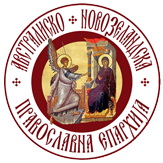The second petition of the Lord’s Prayer is: “Thy kingdom come.” As with the first petition, we must ask what meaning does a believing Christian ascribe to these words, to what does he direct his conscience, his hope, his desire. I am afraid that, as with the first petition, this question is equally hard to answer.
At the dawn of Christianity the meaning of this petition was simple, or accurately, one can say that it embodied and expressed the essential in Christian faith and hope. For it is enough to read the Gospels once to be convinced that the teaching of the kingdom of God lies at the very heart of the preaching and teaching of Christ .Christ came preaching the gospel of the kingdom, saying: “Repent, for the kingdom of heaven is at hand (Mt 4:17). Almost all of Christ’s parables concern the kingdom. He compares it to the treasure for which the man sells all he has; to the seed from which grows an enormous tree; to the yeast which leavens the whole lump of dough.
Throughout we hear this mystical yet alluring promise, this announcement, this invitation into the kingdom of God. “Seek first the kingdom of God” (Mt 13:38). So, possibly the most amazing fact in the long history of Christianity is that this core and central understanding, this very nucleus of the gospel message, confronts us now as a new riddle, whose answer was lost along the way. But how are we to pray about the kingdom of God, how are we to say to God and to ourselves, “Thy kingdom come,” if in fact these words elude us? The difficulty here lies first in the fact that the Gospel itself seems to give the kingdom a double meaning. On the one hand it seems to refer to the future, to the end, to the beyond; it seems to refer to that for which its opponents, the atheists, have always chided Christianity, that Christianity seems to have its center of gravity in some other invisible world beyond the grave.
But then why does Christ say that the kingdom has arrived, and to his disciples’ questions he replies that the kingdom is among them and within them? Doesn’t this mean that we can’t define the kingdom simply in terms of a different future world coming after a catastrophic end annihilation of this earthy world?
It is here that we begin approaching the central issue. For if we have ceased to understand the gospel of the kingdom, and no longer know what we pray when saying the words of the Lord’s Prayer, “Thy kingdom come,” it is because we no longer hear them in their fullness. We always start with ourselves, with questions about ourselves, for even the so-called “believer” is very often interested in religion insofar as it answers questions concerning himself: is my soul immortal, does death put an end to everything or is there possibly something there beyond that fearful and mysterious leap into the unknown?
But the Gospel does not speak about such things. It calls “kingdom” the encounter of man with God, God who is fullness of life and the very life of all life, who is light, love, knowledge, wisdom, and eternity. It tells us that the kingdom comes and begins when man meets God, recognizes him and with love and joy offers himself to him. It says that the kingdom of God comes when my life is filled to the brim with this light, with this knowledge, with this love. And finally it says for the person who has experienced this encounter and has filled his life with this divine life, is that everything, including his death, is revealed in a new light, for that which he encounters, that with which he fills his life here and now, today, is eternity itself, which is God himself.
Indeed, what are we praying for when we pronounce these absolutely unique words, “Thy kingdom come”? Above all, of course, we pray that this encounter may take place now, here, and today, in the present circumstances, that in my mundane and difficult life I could hear the words, “the kingdom is near you,” and that my life would be filled with the power and light of the kingdom, with the power and light of faith, love and hope. Furthermore, we desire that the whole world, which so evidently lies in evil and longing, in fear and in striving, would see and receive this light, which entered the world some two thousand years ago, when at the outskirts of the Roman Empire was heard that lonely, yet still resounding voice: “Repent, for the kingdom of God is at hand” (Mt 3:2). We pray also that God would help us to not betray this kingdom, not to constantly fall away from it, not to sink into the engulfing darkness, and that finally, this kingdom of God would come in power, as Christ says.
Yes, Christianity always contains the anticipation of the beloved, hope for the final manifestation on earth and in heaven: “that God may be everything to everyone (1 Cor 15:28), “Thy kingdom come.” In a sense it isn’t even a prayer, rather it is the heartbeat of anyone who has at least once in his life seen, felt, loved the light and joy of God’s kingdom and who knows that it is the beginning, the content, and the fulfilment of everything which lives.
father Alexander Schmemann















